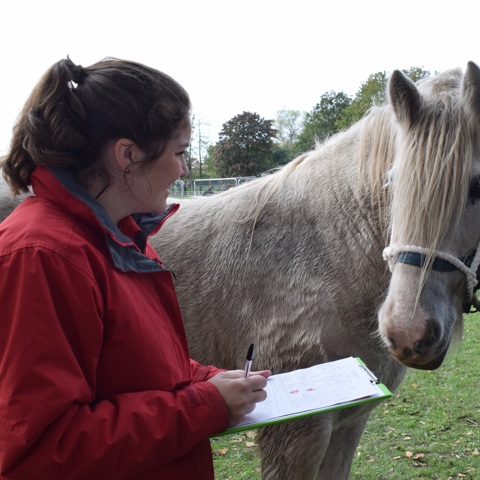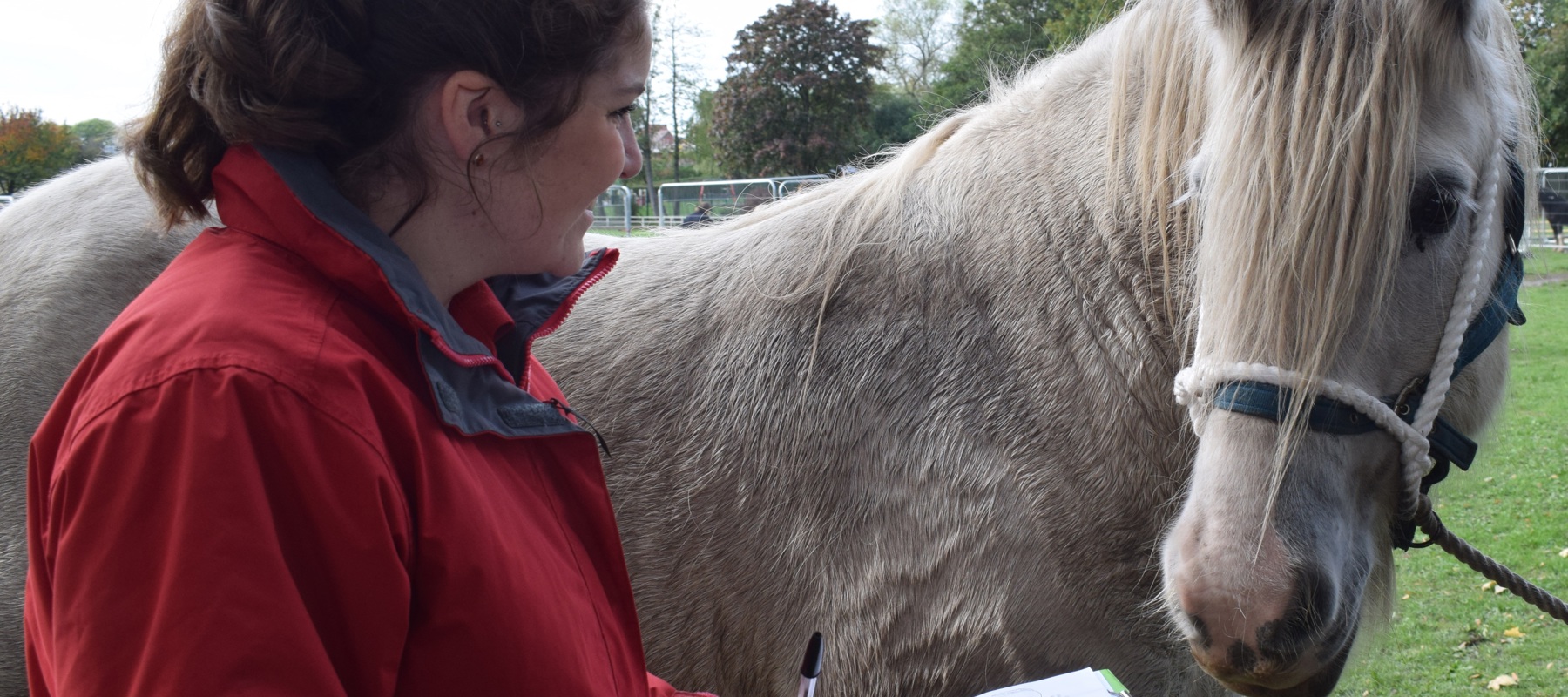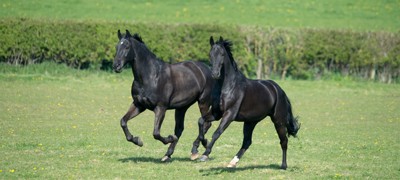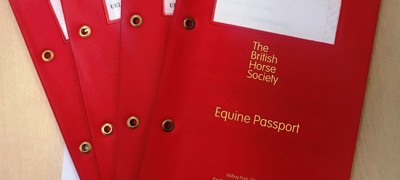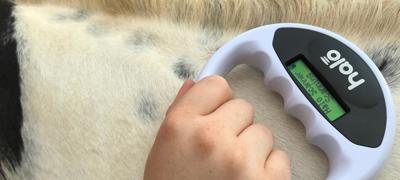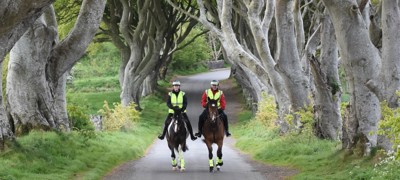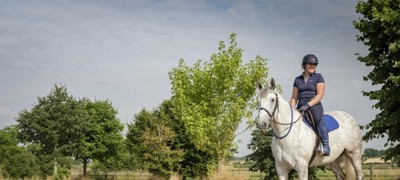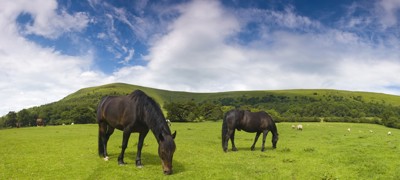What is a horse passport?
It is a single lifetime identification document which records the identity of a horse and contains information about the horse. A horse passport is not an ownership document and cannot be used as legal proof of ownership of the horse. Proof of ownership comes in the form of a sale agreement between a buyer and seller.
Does every horse need a passport?
Under current legislation, all horses, ponies, donkeys, mules and zebras must hold a passport whether they are intended to travel or not. The passport must accompany the horse at all times (with the exception of travel for emergency veterinary treatment).
Owners must microchip their horse and submit a passport application to a UK Passport Issuing Organisation of their choosing by 30th of November in their year of birth, or before they reach 6 months of age, whichever occurs later. If the passport is issued once the horse has exceeded 12 months of age, the horse is no longer eligible for a ‘new’ passport, and must be issued a ‘replacement’. (See replacement passport webpage or contact the BHS Passport Office for further information)
The BHS is an ID Only Passport Issuing Organisation, and is therefore only authorised to issue passports to horses with unverified pedigree. To select the most appropriate PIO (or Studbook if you wish to register your horse’s pedigree) please visit the Gov.UK page to obtain a list, or contact the BHS Passport Office for advice.
Applying for a horse passport
To help prevent any delays in your application being processed or an incorrect application being returned:
- Ensure that the application is completed, signed and stamped by an accredited vet
- All sections of the application are complete
- The silhouette is marked in red ink with a minimum of 5 identifying features
- The microchip number has been checked on the Equine Register chip checker https://www.equineregister.co.uk/chipchecker
- The application has been completed on a BHS application form, applications completed on forms for alternative PIOs will be returned
- The DOB and signature of all owners is present on the form, and all owners are over the age of 16
When completing a passport application, if your horse is found to have an existing microchip, be sure to check the microchip number. The horse may have previously been issued a passport and you will need to apply to the original PIO for a duplicate if this is the case.
Downloadable forms
chevron-down
chevron-up
- Horse Under 12 Months-New Passport Form
- Horse Over 12 Months-Replacement Passport Form
- To Update Ownership Details-Change of Ownership Form
- To Update Owner Address Details-Address Update Form
- To Replace Lost/Damaged Passport-Duplicate Form
- Donkey Passport Application Form
- To Register Imported Horse-Over Stamp Form
- To Add Microchip/Record Castration-Passport Update Form
- Legal responsibilities
For horses under 12 months that do not have a passport
chevron-down
chevron-up
If you have a horse under the age of 12 months that has not previously been issued a passport, you can apply for a new passport.
DEFRA states that the application should be submitted to a PIO before the horse reaches 6 months of age or before 30th November in the year they were born, whichever occurs later.
Even if you submit your application after this date, if it is submitted and the PIO processes it before the horse reaches 12 months of age, it will be processed as a new passport.
If you submit your application after the horse reaches 12 months of age, you will be issued a replacement passport.
For horses over 12 months that do not have a passport
chevron-down
chevron-up
If you have a horse over the age of 12 months that has not previously been issued a passport, a replacement passport will need to be issued. This is a passport that automatically signs a horse out of the human food chain having surpassed one year of age with no record of medicines administered to it.
For horses that have previously been issued a passport that is lost/stolen
chevron-down
chevron-up
If you have lost your horse’s passport, or it has been stolen, you will need to apply for a duplicate passport.
Duplicate passports can only be produced by the Passport Issuing Organisation that issued the original version. If you cannot remember who issued the passport, you can find this out by typing your horse’s microchip number into the Equine Register ChipChecker.
How much does a horse passport cost?
chevron-down
chevron-up
- Passport applications cost £25.
- For registered charities, passport applications cost £15
- All passports are sent out by recorded delivery (Signed For™) at no additional cost.
How long does a horse passport take?
chevron-down
chevron-up
Upon receipt of the application form, the BHS will issue your horse's passport within 15 working days.
Microchips
chevron-down
chevron-up
It is a legal requirement that horses are microchipped and the number will be needed for a passport application. The microchipping of horses is classified as an act of veterinary surgery; therefore, microchips must only be implanted by a veterinary surgeon. This differs from other species because horse microchips must be implanted into the nuchal ligament rather than simply under the skin. This is to ensure that the microchip does not move around the body and can be easily located for scanning purposes.
The vet must first check the horse for an existing microchip and any evidence that a microchip has been removed prior to the implantation. Further details are available from the RCVS.
To check a microchip, visit the Equine Register.
Checking your horse’s name
chevron-down
chevron-up
When names have more than one word, for example ‘Leamington Flyer’, they will need to be checked on the Central Prefix Register. Owners have the ability to register their own unique prefix, which is often used when breeding horses. If your horse’s name is already registered, then we won’t be able to use it - and any name that is regarded as being offensive will be rejected.
Terms and conditions
chevron-down
chevron-up
- Please note that we can only process applications that are submitted with completed and correct paperwork.
- The BHS cannot accept application forms from any other organisation and such paperwork will not be processed and will be returned to the sender.
- It is an offence to apply for a new passport when one already exists for the horse.
- If your horse’s application form is received outside of the statutory time limit, your passport must be produced as a replacement and Section IX Part II (or Section II Part II for passports issued from 1 January 2016) will be signed by a BHS representative to declare the horse is not intended for human consumption.
- The BHS cannot be held responsible for any passports that are lost or damaged in the post.
- Please note if you send in an incomplete application or a passport without a covering note we will attempt to contact you to request the supporting documentation or payment up to a period of six months. If we have not received the additional paperwork/payment from you within that time we will destroy any documentation already received in order to comply with GDPR.
- The BHS is only able to make changes to passports that were originally issued by the British Horse Society.
- You do not have to be a member of the BHS to obtain a passport or to complete any updates on a BHS passport.
Passports issued outside the UK (including Ireland)
chevron-down
chevron-up
If your horse is now permanently residing in the UK, but holds a foreign passport, this passport will need to be submitted to a UK passport issuing organisation to be ‘over stamped’.
This means that the horse’s information is entered into the UK Central Equine Database, and the UK PIO takes authority of the horse’s UELN (passport number) issued by the original PIO. This must be done within 30 days of the horse arriving in the UK.
The BHS can only over stamp passports issued with no breeding recorded (no parentage/DNA testing), as we are an ID only Passport Issuing Organisation.
What does an equine passport look like?
The front cover of the BHS passport has been amended three times. All three versions remain valid.
- The most up-to-date version is the red covered passport, which is bound together using two rivets.
- All pages contained within the passport have ‘Equine passport’ written in the background diagonally across the pages. Any pages which do not carry this watermark were not issued by the BHS and suggest that the passport has been tampered with. This should be reported to Trading Standards.
- The first page features a black The British Horse Society stamp and the page is laminated . If this mark is missing, it again suggests that the passport has been tampered with, and this should be reported to Trading Standards.
Digital Stable
You can manage all your equine passports and information in one place, the Equine Register Digital Stable, where you can:
- Check your equine microchip details are correct on the Central Equine Database (CED)
- Check the data held about you and your equine on the CED is accurate
- Quickly report if your horse missing to the relevant authorities
- Set statuses and alerts on the National ChipChecker
All changes made to a horse’s records via digital stable must be endorsed by the PIO. in most cases, to endorse these changes the passport will need to be submitted to the office along with an application form and the appropriate fee in order for the changes to be made. It is insufficient to simply request them via digital stable.
Legal changes and updates
The following updates are mandatory and must all be made via your original Passport Issuing Organisation. While awaiting PIO approval, you can protect your horse by updating the relevant status on the Digital Stable.
There are no additional costs involved in updating your BHS horse passport for these changes.
Food status
chevron-down
chevron-up
If your horse has been signed out of the food chain (no longer eligible to be sold for meat), the registered owner is required by law to update the PIO if the status has changed since the passport was issued. The PIO will require a photo of the passport page, stamped by a vet.
Castration
chevron-down
chevron-up
If your horse has been castrated since the passport was issued, this will need to be confirmed by a vet and requires the passport to be sent to the PIO along with a completed passport update form.
Microchip
chevron-down
chevron-up
If your horse has been microchipped since the passport was issued, this update will need to be confirmed by a vet and requires a completed passport update form to be sent to the PIO.
Death
chevron-down
chevron-up
In the sad event of the death of your horse, the passport must be returned to the PIO within 30 days.
For a BHS passport, please return it to our Passport Office with a covering letter detailing the date and cause of death. If you would like your horse’s passport to be returned, please reference this in your letter and include a stamped addressed envelope.
ScotEquine
ScotEquine is a free compliance checker service to ensure the correct data is held on the CED for equines in Scotland and essentially functions as a full census. It also offers traceability and helps disease control by providing real-time health alerts.
A ScotEquine Smart ID card is issued for every connected equine.
Exporting
The British Horse Society passports are ‘ID only’ so you will need to complete an Export Health Certificate (EHC) and some supporting documents to export or move a live animal from Great Britain to the EU or Northern Ireland. The EHC is an official document that confirms your export meets the health requirements of the destination country. Find out more here.

